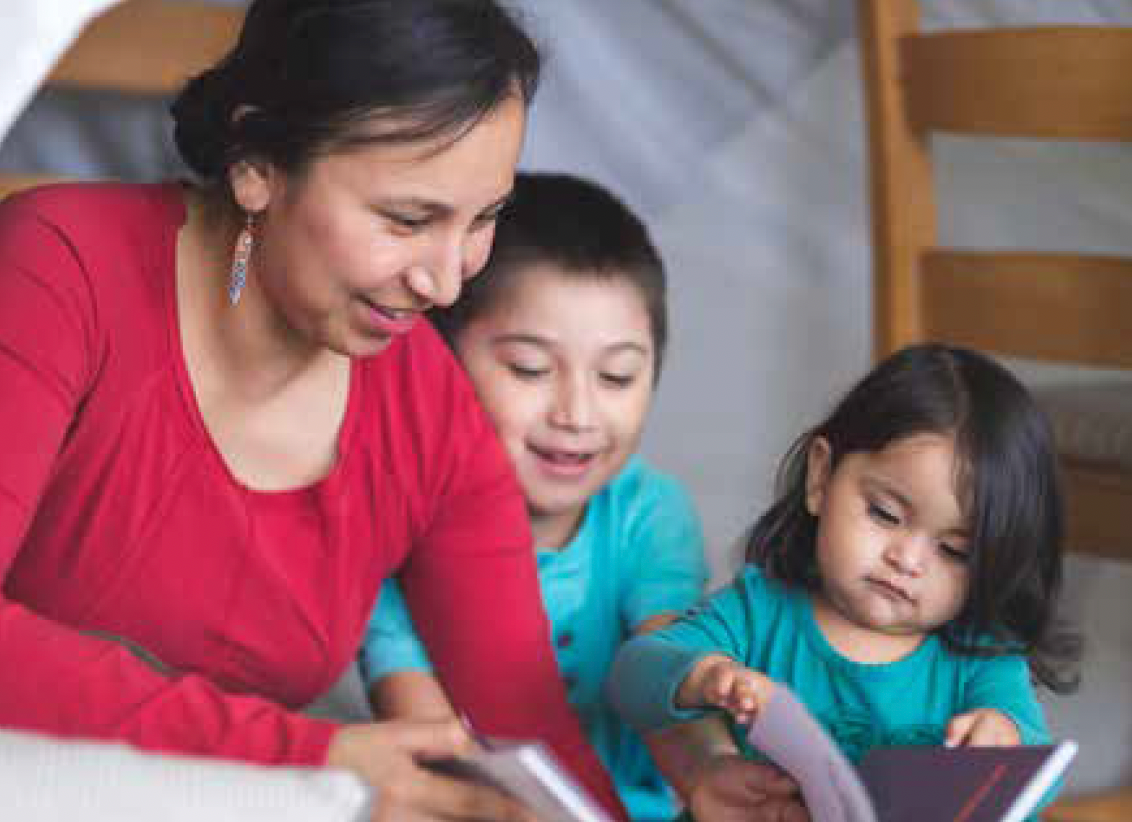
4. Reflective Practice

Thinks about and questions personal biases, assumptions, and experiences before, during, and/or after consultative interactions. Considers the influences on and perspectives of others (e.g., infant, young child, family, staff) in the context of consultation, including how these may vary based on infant, young child, family, staff, and consultant ability, race/ethnicity, and language background (i.e., “what might this experience have been like for the infant, young child, staff member, or caregiver?”).
Promotes reflective practice with consultees, using this experience-based learning to support consultees’ professional growth and development. Commits to a journey of ongoing self-exploration to understand how one’s culture, background, race, and other social identities (including issues related to privilege and power) impact the way IECMH consultants see themselves and others.

Unless otherwise noted, the IECMH competencies refer to Infant Family Specialist and Early Childhood Family Specialist. If an “MHS” is noted, this competency is related to Infant Mental Health Specialist and Early Childhood Mental Health Specialist. “MHM” refers to Infant Mental Health Mentor and Early Childhood Mental Health Mentor.
4A.1. Understands, can describe, and values the importance and benefits of reflective practice.
Essential or important?: Essential
Essential
IECMHC Endorsement Competency:  Reflection
Reflection
Knowledge/Skill Area:  Emotional Response
Emotional Response
As Demonstrated by/Other Work Experience (and Interview):  Uses reflective practice throughout work to understand own emotional response to infant/family work and recognize areas for professional and/or personal development
Uses reflective practice throughout work to understand own emotional response to infant/family work and recognize areas for professional and/or personal development
4A.1. Understands, can describe, and values the importance and benefits of reflective practice.
Essential or important?: Important
Important
IECMHC Endorsement Competency:  Direct Service Skills
Direct Service Skills
Knowledge/Skill Area:  Reflective Supervision (MHM)
Reflective Supervision (MHM)
As Demonstrated by/Other Work Experience (and Interview):  Promotes reflective supervision
Promotes reflective supervision
4A.2. Regularly reflects on values, beliefs, biases, assumptions, and experiences as they influence interactions, relationships, and the directions that consultation may take.
Essential or important?: Important
Important
IECMHC Endorsement Competency:  Reflection
Reflection
Knowledge/Skill Area:  Contemplation
Contemplation
As Demonstrated by/Other Work Experience (and Interview):  Regularly examines own thoughts, feelings, strengths, and growth areas; discusses issues, concerns, actions to take with supervisor, consultants, or peers
Regularly examines own thoughts, feelings, strengths, and growth areas; discusses issues, concerns, actions to take with supervisor, consultants, or peers
4A.2. Regularly reflects on values, beliefs, biases, assumptions, and experiences as they influence interactions, relationships, and the directions that consultation may take.
Essential or important?: Important
Important
IECMHC Endorsement Competency:  Reflection
Reflection
Knowledge/Skill Area:  Self-awareness
Self-awareness
As Demonstrated by/Other Work Experience (and Interview):  Seeks a high degree of congruence between self-perception and the way others perceive them
Seeks a high degree of congruence between self-perception and the way others perceive them
4A.3. Reflects on biases and can recognize when biases may negatively impact effective consultation. Works to explore personal implicit biases, and takes steps to make objective decisions.
Essential or important?: Important
Important
IECMHC Endorsement Competency:  Unique
Unique
Knowledge/Skill Area:  Unique
Unique
As Demonstrated by/Other Work Experience (and Interview):  Unique
Unique
4A.4. Reflects on culture, values, belief, and backgrouds, privilige, biases, assumptions, and experiences including the impact of experience with racism, classism, sexism, able-ism, homophobia, xenophobia, and/or other systems of oppression in order to provide diversity-informed and culturally attuned services. Irving Harris Foundation. 2018. Diversity-Informed Tenets for Work with Infants, Children and Families. Chicago, IL: Irving Harris Foundation.
Essential or important?: Important
Important
IECMHC Endorsement Competency:  Unique
Unique
Knowledge/Skill Area: 
As Demonstrated by/Other Work Experience (and Interview): 
4A.5. Uses self-reflection to maintain awareness of thoughts, emotions, and visceral reactions that regularly inform and can enhance the quality of consultative work.
Essential or important?: Important
Important
IECMHC Endorsement Competency:  Reflection
Reflection
Knowledge/Skill Area:  Emotional response
Emotional response
As Demonstrated by/Other Work Experience (and Interview):  Uses reflective practice throughout work to understand own emotional response to infant/family work and recognize areas for professional and/or personal development
Uses reflective practice throughout work to understand own emotional response to infant/family work and recognize areas for professional and/or personal development
4A.6. Reflects on and explores a wide variety of approaches to working with staff, families, and infants or young children, and understands that there is no single correct strategy (or any quick fixes) when it comes to change and growth.
Essential or important?: Essential
Essential
IECMHC Endorsement Competency:  Thinking
Thinking
Knowledge/Skill Area:  Maintaining Perspective
Maintaining Perspective
As Demonstrated by/Other Work Experience (and Interview):  Sees and can explain the interactions of multiple factors adn perspectives; Assigns prioities to needs, goals, and actions
Sees and can explain the interactions of multiple factors adn perspectives; Assigns prioities to needs, goals, and actions
4A.7. Explores and reflects on views and values related to equity; and particularly racial-equity-related issues and how these views influence us individuals, organizations and systems.
Essential or important?: Important
Important
IECMHC Endorsement Competency:  Unique
Unique
Knowledge/Skill Area:  Unique
Unique
As Demonstrated by/Other Work Experience (and Interview):  Unique
Unique
4A.8. Reflects on and utilizes "location of self" (i.e., acknowledging our multiple selves and how we make them explicit) orientation by reflecting with supervisor and colleagues on how one’s cultural identities (e.g., gender, race, class, religion, sexual orientation, immigration status) might influence consultative relationships.
Essential or important?: Important
Important
IECMHC Endorsement Competency:  Reflection
Reflection
Knowledge/Skill Area:  Contemplation
Contemplation
As Demonstrated by/Other Work Experience (and Interview):  Regularly examines own thoughts, feelings, strengths, and growth areas and discusses issues, concerns, and actions to take with supervisor, consultants, and peers
Regularly examines own thoughts, feelings, strengths, and growth areas and discusses issues, concerns, and actions to take with supervisor, consultants, and peers

Unless otherwise noted, the IECMH competencies refer to Infant Family Specialist and Early Childhood Family Specialist. If an “MHS” is noted, this competency is related to Infant Mental Health Specialist and Early Childhood Mental Health Specialist. “MHM” refers to Infant Mental Health Mentor and Early Childhood Mental Health Mentor.
4B.1. Encourages staff and families to become aware of behaviors that stir up strong feelings and reactions, and assists them in identifying the origins of those feelings and reactions so that they can respond to families, caregivers, and/or infants and young children compassionately and effectively.
Essential or important?: Essential
Essential
IECMHC Endorsement Competency:  Reflection
Reflection
Knowledge/Skill Area:  Personal/Professional Development (MHM)
Personal/Professional Development (MHM)
As Demonstrated by/Other Work Experience (and Interview):  Nurtures in novice practitioners, students, and other colleagues the capacity to use results of reflection to identify areas for personal development; identify and participate in value-added learning activities
Nurtures in novice practitioners, students, and other colleagues the capacity to use results of reflection to identify areas for personal development; identify and participate in value-added learning activities
4B.1. Encourages staff and families to become aware of behaviors that stir up strong feelings and reactions, and assists them in identifying the origins of those feelings and reactions so that they can respond to families, caregivers, and/or infants and young children compassionately and effectively.
Essential or important?: Important
Important
IECMHC Endorsement Competency:  Working with Others
Working with Others
Knowledge/Skill Area:  Empathy & Compassion (MHM)
Empathy & Compassion (MHM)
As Demonstrated by/Other Work Experience (and Interview):  Promotes supervisory relationship in which the supervisee can explore ideas, reflect about cases, and grow
Promotes supervisory relationship in which the supervisee can explore ideas, reflect about cases, and grow
4B.2. Supports staff and families in understanding how their values, beliefs, backgrounds, privilege, biases, assumptions, and experiences—along with factors connected to specific settings—play a role in influencing infants' and young children’s behavior.
Essential or important?: Essential
Essential
IECMHC Endorsement Competency:  Direct Service Skills
Direct Service Skills
Knowledge/Skill Area:  Reflective Supervision (MHM)
Reflective Supervision (MHM)
As Demonstrated by/Other Work Experience (and Interview):  Enables supervisees to use the supervisory/consultative relationship to reflect upon direct work with families including observation of own feelings and thoughts regarding the selection and use of clinical interventions in various settings
Enables supervisees to use the supervisory/consultative relationship to reflect upon direct work with families including observation of own feelings and thoughts regarding the selection and use of clinical interventions in various settings
4B.2. Supports staff and families in understanding how their values, beliefs, backgrounds, privilege, biases, assumptions, and experiences—along with factors connected to specific settings—play a role in influencing infants' and young children’s behavior.
Essential or important?: Important
Important
IECMHC Endorsement Competency:  Reflection
Reflection
Knowledge/Skill Area:  Parallel Process (MHM)
Parallel Process (MHM)
As Demonstrated by/Other Work Experience (and Interview):  Recognizes and responds appropriately to parallel process
Recognizes and responds appropriately to parallel process
4B.3. Seeks to engender curiosity through carefully timed, nonjudgmental inquiry. Uses listening, patience, and reflection to encourage others to explore possibilities for approaching challenges and supporting growth and well-being.
Essential or important?: Important
Important
IECMHC Endorsement Competency:  Direct Service Skills
Direct Service Skills
Knowledge/Skill Area:  Reflective Supervision (MHM)
Reflective Supervision (MHM)
As Demonstrated by/Other Work Experience (and Interview):  Enables supervisees to use the supervisory/consultative relationship to reflect upon direct work with families including observation of own feelings and thoughts regarding the selection and use of clinical interventions in various settings
Enables supervisees to use the supervisory/consultative relationship to reflect upon direct work with families including observation of own feelings and thoughts regarding the selection and use of clinical interventions in various settings
4B.3. Seeks to engender curiosity through carefully timed, nonjudgmental inquiry. Uses listening, patience, and reflection to encourage others to explore possibilities for approaching challenges and supporting growth and well-being.
Essential or important?: Important
Important
IECMHC Endorsement Competency:  Reflection
Reflection
Knowledge/Skill Area:  Curiosity (MHM)
Curiosity (MHM)
As Demonstrated by/Other Work Experience (and Interview):  Nurtures in novice practitioners, students, and other colleagues the capacity to remain open and curious
Nurtures in novice practitioners, students, and other colleagues the capacity to remain open and curious
4B.4. Collaborates with others to explore how they can regulate their emotions, engage in self-care, reduce stress, strengthen coping mechanisms and resilience, and aim for life balance even in the face of difficult circumstances.
Essential or important?: Important
Important
IECMHC Endorsement Competency:  Working with Others
Working with Others
Knowledge/Skill Area:  Supporting Others (MHM)
Supporting Others (MHM)
As Demonstrated by/Other Work Experience (and Interview):  Promotes supervisory relationship in which the supervisee can explore ideas, reflect about cases, and grow
Promotes supervisory relationship in which the supervisee can explore ideas, reflect about cases, and grow
4B.5. Provides individual and group opportunities for staff to engage in reflection in regard to values, beliefs, backgrounds, privilege, biases, assumptions, and experiences when they are working in a supportive role with families.
Essential or important?: Important
Important
IECMHC Endorsement Competency:  Direct Service Skills
Direct Service Skills
Knowledge/Skill Area:  Reflective Supervision (MHM)
Reflective Supervision (MHM)
As Demonstrated by/Other Work Experience (and Interview):  Enables supervisees to use the supervisory/consultative relationship to reflect upon direct work with families including: 1)observation of own feelings and thoughts regarding the selection and use of clinical interventions in various settings; and 2) effects of treatment on relationships and specific interventions
Enables supervisees to use the supervisory/consultative relationship to reflect upon direct work with families including: 1)observation of own feelings and thoughts regarding the selection and use of clinical interventions in various settings; and 2) effects of treatment on relationships and specific interventions
4B.6. Assists others in reflecting on the strengths and limitations of the program or other setting in which they work or live (e.g., an agency, classroom, program, other setting, home) and to explore how that program or other setting impacts possibilities for and approaches to supporting children, families, and/or staff.
Essential or important?: Essential
Essential
IECMHC Endorsement Competency:  Unique
Unique
Knowledge/Skill Area:  Unique
Unique
As Demonstrated by/Other Work Experience (and Interview):  Unique
Unique
4B.7. Supports others’ (including colleagues’ and consultees’) developing capacities to explore equity issues and their influence in the population IECMH consultants serve as well as the role consultants play in upholding or dismantling inequitable systems and practices. Encourages deep conversations about race, diversity and inclusion to raise awareness and to support equity in all work interactions.
Essential or important?: Important
Important
IECMHC Endorsement Competency:  Working with Others
Working with Others
Knowledge/Skill Area:  Consulting (MHM)
Consulting (MHM)
As Demonstrated by/Other Work Experience (and Interview):  Provides expert advice, testimony, and/or recommendations to programs, agencies, legislative bodies, and service systems, taking into account needs, goals, context, and constraints to advocate for policy, program, and/or system improvements
Provides expert advice, testimony, and/or recommendations to programs, agencies, legislative bodies, and service systems, taking into account needs, goals, context, and constraints to advocate for policy, program, and/or system improvements
4B.8. Reflects with supervisor and colleagues on how to leverage opportunities to be a voice for equity in one’s own organization and the broader community.
Essential or important?: Important
Important
IECMHC Endorsement Competency:  Administration (MHM)
Administration (MHM)
Knowledge/Skill Area:  Program development (MHM)
Program development (MHM)
As Demonstrated by/Other Work Experience (and Interview):  Advocates for funds/programming for effective service delivery to families outside of the dominant culture
Advocates for funds/programming for effective service delivery to families outside of the dominant culture
